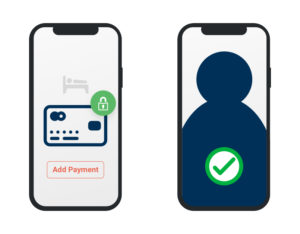Originally posted: June 13, 2019. Updated: August 19, 2022.
Mobile phones are practically universal these days with 81% of U.S. adults having a smartphone. Globally, 3.8 billion people use smartphones—about half of the world’s population. And the majority of smartphone users rely on those devices for daily actions, including everything from ordering food to calling a cab to booking travel. So, it’s no surprise that hotels, casinos, and luxury residential properties are starting to implement mobile key technology into their operations—especially now that it can play a major role in safety for guests and staff, removing the need for a face-to-face conversation as guests arrive.
Also known as a digital key, mobile key allows guests to unlock a door using an app on their smartphone, offering safer, more convenient, and more sustainable room access than a traditional plastic room key.
When Travelport surveyed 16,000 travelers from 25 countries for its 2018 Digital Traveler Survey, it found that 50 percent of business travelers want to use a mobile key to unlock their guest room door. In 2020, 73% of guests said they’d download an app if it gave them access to a mobile room key.
So, why should your property convert to mobile key access? The answer is simple, incorporating this technology streamlines your check-in process, offers the contactless experience guests are seeking, and gives your property a competitive edge. And frankly, there’s just no downside. Its meteoric rise in popularity over the past year means mobile key is here to stay, and guest demand for it will only go up.
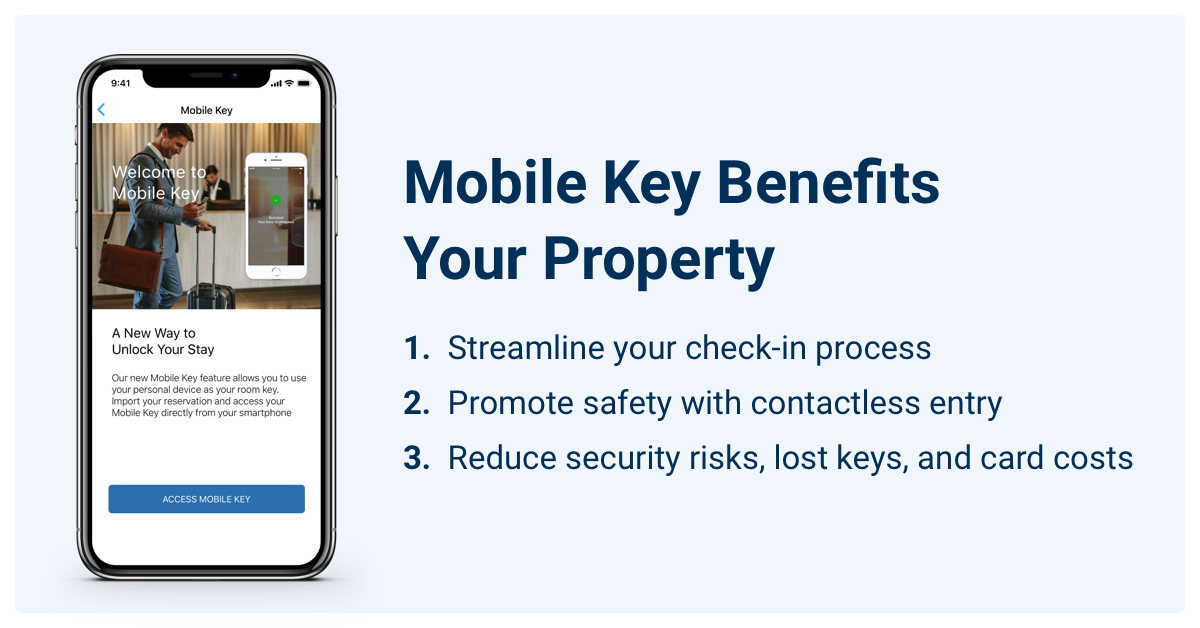
Mobile key enhances safety and efficiency for staff and guests.
Mobile key technology makes it easier for a hotel, casino, or luxury residential property to manage guest needs better and can increase guest satisfaction by at least seven percent. Keyless entry, when combined with mobile check-in, gives guests the ability to skip the front desk and go straight to their guest rooms, which reduces check-in times and front desk friction while also keeping both guests and front desk staff safe.
By offering mobile key technology, properties can reduce the amount of time front desk staff must spend checking in guests and refocus that attention on providing more personalized guest service. Mobile key use also means employees do not have to physically replace lost keys, which increases efficiency and reduces key costs for your property at the same time.
Increase security—eliminating the headaches that come with lost keys.
Not only does it increase guest satisfaction and give your guests the convenience of skipping the front desk, but mobile key technology can offer your guests increased security and reduce the risk of a lost or stolen room key.
Digital key technology eliminates the risk that comes with marking a plastic key card with a name, contact information, or a room number before handing it to a guest. If a plastic room key is lost that sensitive information can fall into the wrong hands, but a mobile key located on the guest’s own smartphone removes that possibility.
When a hotel or casino uses mobile key technology, they assign a key directly to each guest and any appropriate friends or family members. This process provides an added layer of security that lets the property better manage who has access to its building – one that isn’t possible when you merely hand out room keys that can be passed along.
Another layer of security with a mobile key is that guests must enter their phone’s password or use Touch or Face ID to access their key, meaning someone else cannot easily use it to gain entry.
If someone does misplace their phone, and therefore key, existing technology can help them find it fairly easily. Using the “Find My Phone” app or similar helps identify a missing phone’s location, whereas there is no such technology to find a lost key or keycard.
Hotel guests prefer mobile key technology.
The modern traveler is looking for a digital-first experience. A recent study revealed that 76 percent of travelers said their smartphone is their most important travel companion. Airlines have already adapted to this expectation by offering mobile boarding passes and mobile check-in through their own apps. Rideshare apps like Uber and Lyft give travelers the ability to request and track their ride via their mobile device.
Hotels can meet this need by providing mobile check-in and mobile key technology, which give guests the convenience of a digital-first experience that other sectors of the travel industry offer. Studies show that two-thirds of travelers want to use their mobile device as their room key and 46 percent of guests say mobile key is an important feature for them.
Because people keep their smartphones nearby at all times, a mobile key gives travelers one less thing to keep track of. Guests may forget to bring a plastic room key with them, but they are less likely to forget to bring their phone, which also reduces the chance of locking themselves out.
In the end, mobile key has gained massive popularity for two reasons: first, it’s extremely important in the short-term because it reduces risk, making travelers and staff members feel more comfortable. But second, it has incredible potential and long-term benefits for the future. The digital convenience, reduced costs, sustainability, and efficiency mobile key can bring to any property will deliver value to properties over the next decade and beyond.
Converting to mobile key at your property not only allows guests quicker and easier check-in and access to their room, but it also means more efficiency for your staff.
Interested in learning more about implementing mobile key at your property? Get more information in a one-sheet or see it in action in a demo.
Request a Demo
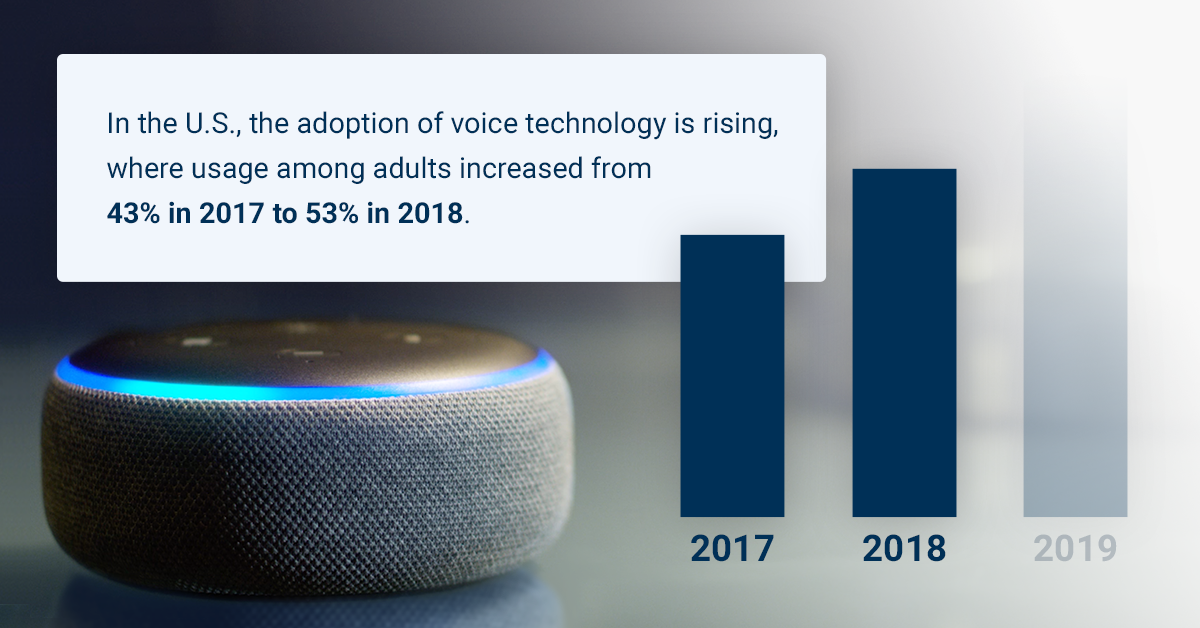
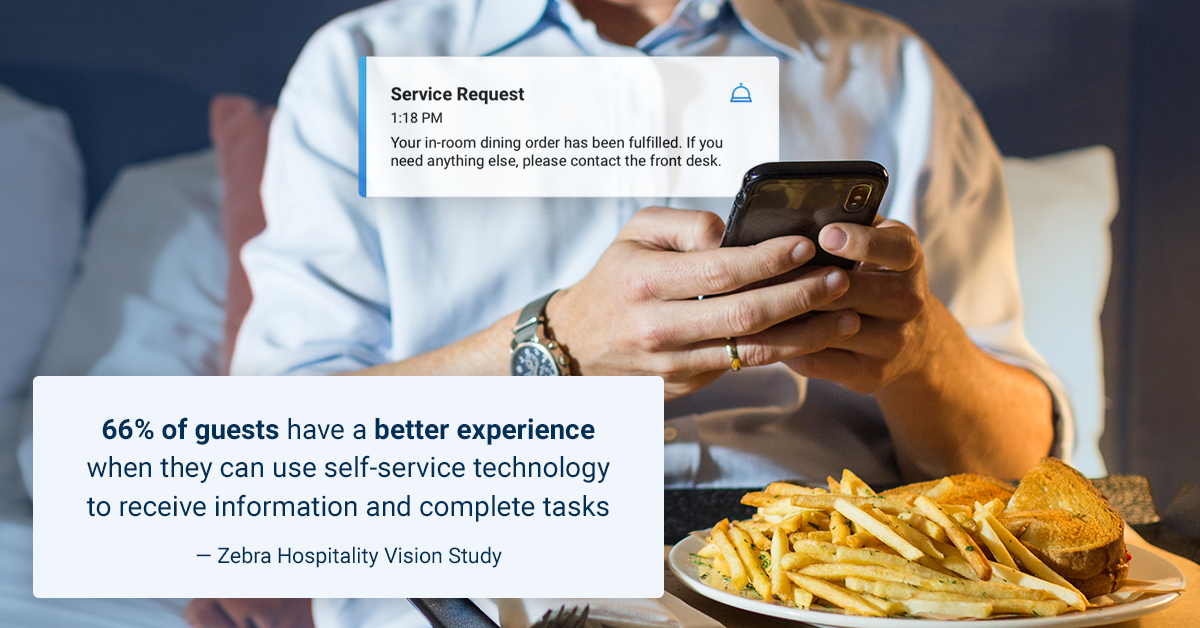
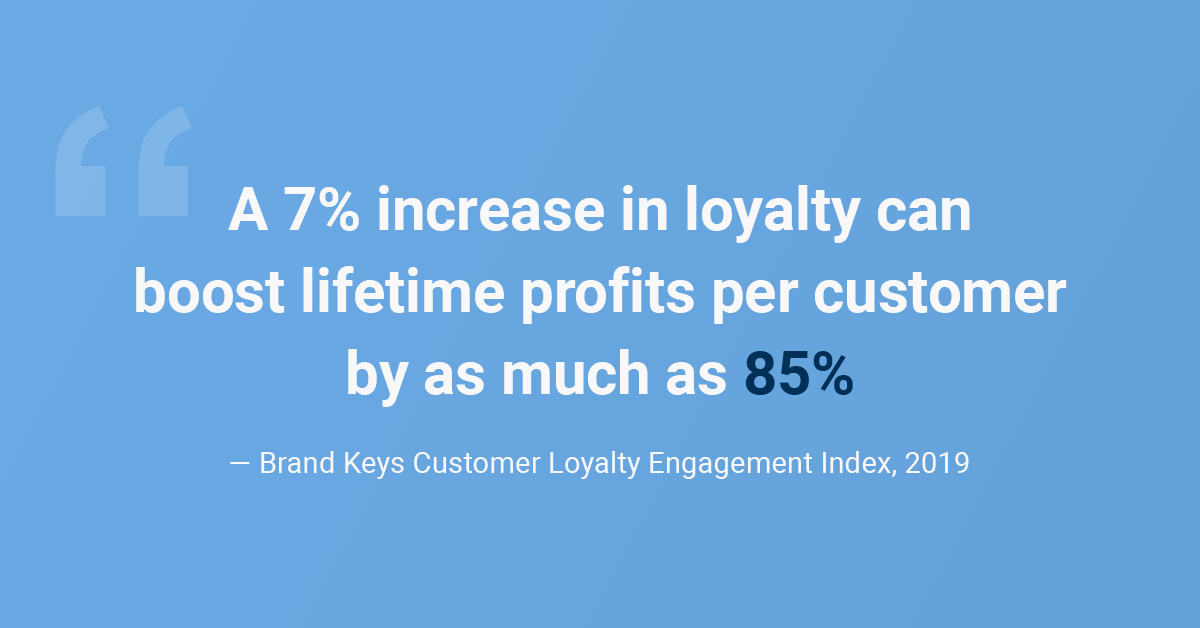

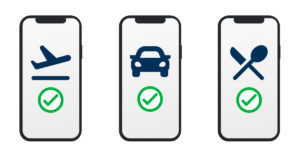 That’s because travelers have been reliant upon their mobile devices to check-in for a flight, catch a ride, and order from their favorite restaurants for years.
That’s because travelers have been reliant upon their mobile devices to check-in for a flight, catch a ride, and order from their favorite restaurants for years.